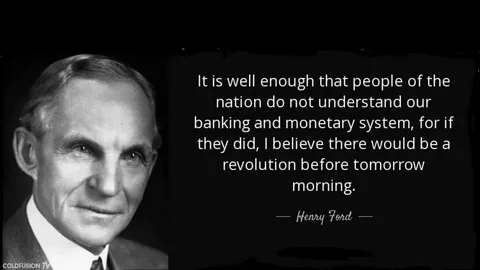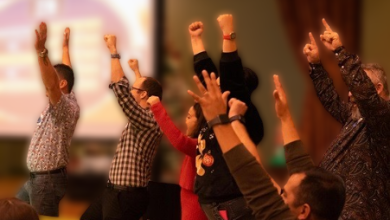Things We Can Learn from History: Insights for a Better Tomorrow

History is more than just a record of dates and events; it’s a treasure trove of lessons that can help shape a brighter future. By understanding past successes and failures, we can make informed decisions to build a better tomorrow. In this article, we’ll explore key insights from history that remain relevant today, touching on leadership, innovation, social change, and resilience.
1. Leadership: The Power of Vision and Empathy
History is filled with examples of great leaders who transformed societies. Leaders like Abraham Lincoln, Mahatma Gandhi, and Nelson Mandela showed that vision and empathy could unite people and overcome deep-seated divisions.
From Lincoln’s Emancipation Proclamation to Mandela’s reconciliation efforts in post-apartheid South Africa, these leaders demonstrated the importance of prioritizing unity over personal gain. Modern leaders can draw from their examples to foster collaboration and inclusivity in a world often divided by politics and ideologies.
What can we learn: Effective leadership combines vision, empathy, and the ability to inspire others.
2. Innovation: Embracing Change for Progress
The Industrial Revolution, the invention of the printing press, and the digital age show that societies thrive when they embrace innovation. The printing press, for instance, revolutionized knowledge sharing, empowering ordinary people with information previously limited to elites.
Similarly, the technological advancements of the 20th and 21st centuries have reshaped industries, economies, and how we interact with the world. However, history also warns us about the pitfalls of unchecked progress, such as environmental degradation and widening inequality.
What can we learn: Progress is fueled by innovation, but it must be guided by ethical considerations to ensure sustainability.
3. Social Movements: The Ripple Effects of Collective Action
History is replete with examples of social movements driving transformative change. The civil rights movement in the United States, women’s suffrage, and the global fight for climate justice show the power of collective action.
These movements remind us that lasting change often requires persistence, solidarity, and strategic planning. Despite setbacks, movements that focus on equality, justice, and sustainability continue to reshape societies for the better.
What can we learn: Grassroots efforts can challenge the status quo and create enduring change when driven by purpose and unity.
4. Resilience: Overcoming Adversity
Wars, pandemics, and economic crises have tested humanity’s resilience throughout history. The aftermath of World War II is a prime example of how determination and collaboration can rebuild nations. The Marshall Plan, for instance, helped restore Europe’s economy and fostered international cooperation.
The COVID-19 pandemic, while recent, has also underscored the importance of resilience. Communities worldwide have adapted to unprecedented challenges, learning to prioritize public health and embrace new ways of working.
What can we learn: Resilience, combined with global solidarity, helps communities recover and thrive in the face of adversity.
5. The Danger of Repeating Mistakes
One of the most famous quotes about history comes from philosopher George Santayana: “Those who cannot remember the past are condemned to repeat it.” This sentiment resonates in many contexts, from the rise of authoritarian regimes to economic collapses fueled by greed.
The 2008 financial crisis, for instance, bore similarities to earlier economic downturns, such as the Great Depression. Both stemmed from unchecked speculation and a lack of regulation. Recognizing these patterns can help policymakers and individuals avoid similar pitfalls in the future.
What can we learn: Learning from past mistakes is essential to avoid repeating them.
6. Cultural Understanding: Embracing Diversity
History shows the richness that diversity brings to societies. The Golden Age of Islamic civilization, the Renaissance, and the cultural exchanges along the Silk Road highlight how different cultures can inspire innovation and growth.
Conversely, history also warns of the dangers of intolerance and exclusion, from colonial exploitation to ethnic conflicts. A more inclusive approach fosters mutual respect and paves the way for peaceful coexistence.
What can we learn: Cultural understanding promotes progress and harmony in an interconnected world.
7. Environmental Stewardship: Lessons from Sustainability
Indigenous communities worldwide have long practiced sustainable living, understanding the delicate balance between humans and nature. However, the industrialization of the past few centuries has strained the planet’s resources.
Historical environmental disasters, such as the Dust Bowl of the 1930s, serve as reminders of the consequences of neglecting ecological health. As climate change becomes a pressing global issue, we can learn from history to prioritize sustainability and conservation.
What can we learn: Protecting the environment is crucial for the survival and prosperity of future generations.
Using History as a Guide:
History is not merely a record of what has been; it is a guide for what can be. By learning from past successes and failures, we can navigate challenges more effectively and build a more equitable, sustainable, and prosperous world.
Whether in leadership, innovation, or social justice, history offers a blueprint for progress. By heeding its lessons, we can avoid repeating mistakes and create a future that reflects the best of humanity.
Let us embrace the wisdom of the past to shape a better tomorrow. Share this article to inspire others and spark meaningful conversations about how history can guide our collective journey forward.








